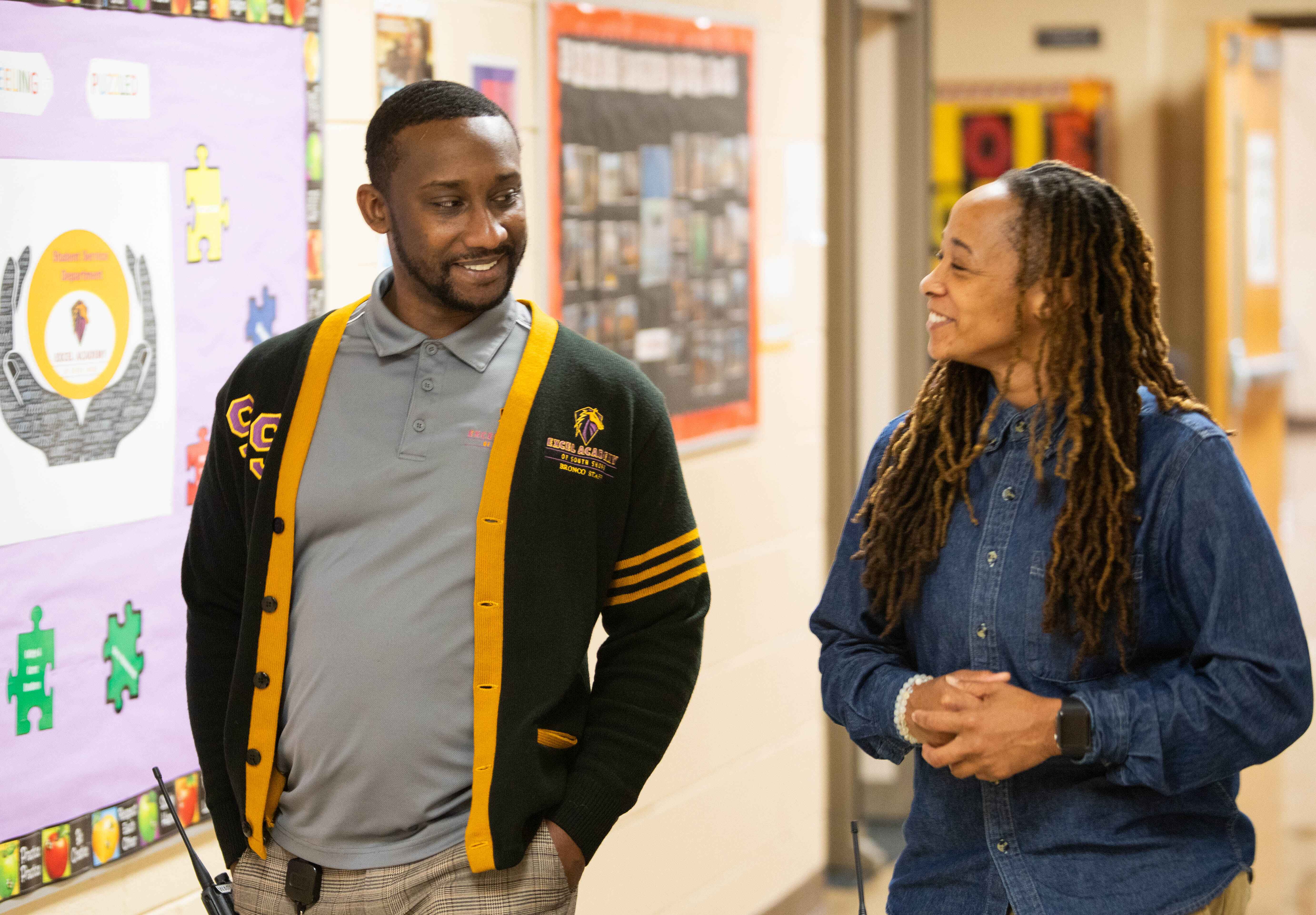From Workshop to Impact: How Coaching Sustains Real Change

Why Mentoring and Ongoing Support Matter More Than One-Off Sessions
Professional development can’t just inspire teachers for a day. It has to change practice for the long term. Across schools nationwide, leaders are shifting from “sit-and-get” PD toward coaching models that sustain impact well beyond a single session.
This article is the second in a five-part series exploring how schools are reimagining professional learning and instructional design to better serve educators and students. Read more from The Power of Comprehensive PD series here.
The Problem with “Event-Based” PD
Traditional workshops often leave teachers with good ideas but little follow-up support. They’re energizing in the moment, but the momentum fades once the next initiative rolls in.
Research confirms this pattern: most teachers need sustained, job-embedded learning to change practice meaningfully. According to the Learning Policy Institute, effective PD includes ongoing support, modeling, feedback, and time for reflection; all of which coaching delivers better than any one-day event.
Coaching: The Bridge Between Learning and Implementation
Instructional coaching provides a bridge between theory and classroom reality.
In coaching models, teachers receive feedback in real time, set individualized goals, and reflect on what works, creating a cycle of continuous improvement.
Some schools have even embedded “peer coaching partnerships,” where teachers observe each other and share micro-strategies aligned to school goals. Others use multi-tiered coaching systems led by master teachers or PD specialists who tailor support based on experience level.
The most effective setups share three traits:
- Consistency: Regular check-ins replace sporadic support.
- Collaboration: Coaching is viewed as partnership, not evaluation.
- Context: The work connects directly to student data and classroom needs.
Building a Culture Where Coaching Thrives
The success of coaching often depends less on the model itself and more on the culture surrounding it. When teachers feel psychologically safe to experiment and reflect, coaching becomes a source of empowerment rather than oversight.
Leaders can strengthen that culture by:
- Protecting dedicated time for coaching cycles.
- Encouraging vulnerability — “try, fail, learn” as a shared norm.
- Aligning coaching priorities with school goals, so the work feels strategic.
Explore more leadership insights on creating reflective, growth-oriented cultures.
From Coaching to Capacity-Building
The ultimate goal of coaching isn’t dependency. It’s capacity. When teachers internalize reflective habits, they carry them forward, modeling the same growth mindset for peers and students alike.
Districts that invest in this sustained model of professional learning often see measurable benefits: higher teacher retention, stronger collaboration across teams, and improved student outcomes.
Learn how coaching models connect to measurable gains.
The Takeaway
Coaching transforms PD from an event into an ecosystem. When teachers receive consistent, embedded support that honors their expertise and challenges their practice, they grow — and so do their students.
As one principal put it:
“We stopped asking teachers to ‘implement’ new strategies overnight. Instead, we walk beside them while they make them their own.”
Next in the Series: The Leadership Multiplier: Building Principals Who Build Teachers | Previous in the Series: The New Definition of Professional Development
Read more on this topic in our whitepaper.

